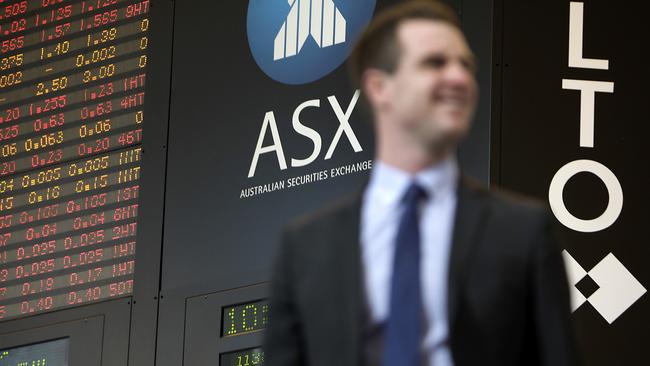Market falls no cause for alarm
Fund managers are expressing few fears about today’s market sell-off, saying it’s still early days in terms of any US pullback.

Australian stocks were trading down two per cent in late morning trade but fund managers are expressing few fears, noting it is still early days in terms of any US pullback and that the Australian market was already in negative territory.
Even after last night’s collapse the S&P 500 index in the US is up 4.2 per cent for the year, while heading into today’s trade the local bourse was down slightly.
In morning trade Mirvac and Lendlease joined gold miners in being among just a few of the 200 stocks to actually rise, with some 188 down in a broad sell off in sympathy with the US.
October is traditionally a bad month in the US as investors start to look ahead to the next calendar year.
So far this month the Nasdaq is down 7.8 per cent - the worst start to a fourth quarter since its 22 per cent fall in 2008 at the start of the GST.
Three stocks wiped $US120 billion in value from the market. Apple fell four per cent, Amazon was down 6.2 per cent and Netflix was down 8.4 per cent.
Australia has not had the big tech stocks to follow and the market darlings this year have included healthcare.
MST strategist Hasan Tevfik noted the Australian market is selling at a price earnings ratio of 15.5 times, which is about average and not cause for much alarm.
With the yield on the US 10-year bond at 3.2 per cent, up from 3.05 per cent at month’s end, the big fear is inflation will start to concern Wall Street.
This was not yet evident last night with the overblown technology stocks the major casualties.
One driving force for the local market is the free cash flow yield at 5.5 per cent which is well above the four per cent rate on business borrowing.
This gap explains why private equity companies are trying to buy assets right now.
Free cash flow is operating cash flow less capital expenditure divided by market capitalisation.
Meanwhile the first session of bank hearings before the House Economics Committee proved a non-event and highlighted why the top barristers are paid the big dollars.
Commonwealth Bank’s Matt Comyn hit all the right messages, expressing contrition and acknowledging that his words mean nothing - it’s how the bank performs which will count.
Royal commission barristers have proved more able in being able to highlight banking malpractice.



